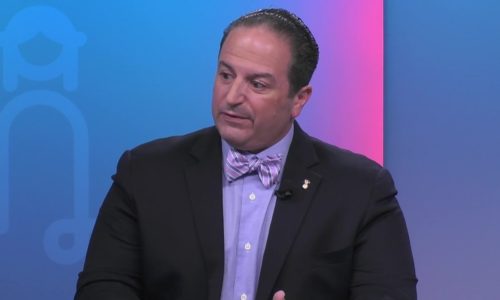Understanding Perimenopause: Symptoms, Support, and Self-Care |
Understanding Perimenopause: Symptoms, Support, and Self-Care
Perimenopause—the often misunderstood phase leading up to menopause—is a natural but sometimes challenging transition in a woman’s life. During this period, hormone levels fluctuate dramatically, triggering a variety of physical, emotional, and psychological symptoms. On a recent episode of Ask the Doc: No Appointment Needed, host Olga Villaverde was joined by Licensed Mental Health Counselor Dr. Rachna Buxani-Mirpuri to address questions about this crucial stage and provide much-needed clarity and guidance.
What is Perimenopause?
Perimenopause refers to the years preceding menopause, when a woman’s reproductive hormones begin to shift. Menopause is officially marked after 12 consecutive months without a menstrual period. However, the lead-up—perimenopause—can begin as early as the late 30s or early 40s and last for several years.
During this time, estrogen and progesterone levels swing unpredictably. As Dr. Buxani-Mirpuri noted, “The rules of your body that have governed you for your entire life—suddenly don’t work anymore.”
Common Symptoms
Not all women experience perimenopause the same way. However, some of the most frequently reported symptoms include:
- Hot flashes & night sweats
- Irritability and mood swings
- Sleep disturbances
- Brain fog and memory issues
- Weight gain, especially around the abdomen
- Skin dryness & hair thinning
- Joint pain and frozen shoulder
- Vaginal dryness and breast tenderness
- Increased anxiety or depression
“It’s not unusual for women to feel like they’re in someone else’s body,” explained Dr. Buxani-Mirpuri. “Recognizing these symptoms as hormonal and not personal failings is empowering.”
Emotional Health and Family Impact
The emotional impact of perimenopause extends beyond the individual. As viewer Ralph shared anonymously, this can be a difficult time for spouses too. Dr. Buxani-Mirpuri emphasized the importance of empathy and understanding in relationships.
“For partners, it’s essential to not take mood swings personally,” she advised. “Offer emotional support, help reduce stress where possible, and most importantly, take care of your own well-being as well.”
When Does Perimenopause Begin?
While menopause typically occurs around age 51, perimenopause can begin up to a decade earlier. Genetics, health history, and lifestyle factors all influence timing. Women in their early 40s—and even late 30s—may begin experiencing symptoms.
For women who’ve had a hysterectomy or irregular cycles, the absence of periods can make it hard to recognize the transition. Pay close attention to emotional and physical changes to identify perimenopausal onset.
Coping Strategies
If you’re wondering how to feel like yourself again, Dr. Buxani-Mirpuri recommends a comprehensive approach to self-care:
- Exercise regularly – Combine cardio and strength training, such as Pilates, to improve mood and metabolism.
- Eat mindfully – Limit caffeine, alcohol, and sugar while increasing whole foods, fiber, and hydration.
- Practice relaxation – Yoga, meditation, and breathwork can reduce anxiety and improve sleep.
- Prioritize sleep – Establish a calming nighttime routine and listen to your body’s needs.
- Communicate – Be open with loved ones about what you’re going through to foster support and understanding.
Trauma and Perimenopause
A powerful question from viewer Andrea addressed the link between trauma and worsening symptoms. According to Dr. Buxani-Mirpuri, studies show that women with a trauma history may experience more intense perimenopausal symptoms, including increased anxiety, insomnia, and mood swings. Trauma-informed therapy can be a key part of healing during this vulnerable time.
The Mind-Body Connection
“There is no separation between mind and body,” Dr. Buxani-Mirpuri reminded viewers. Hormonal changes impact both emotional well-being and physical health. Fatigue, insomnia, and anxiety often work in a cycle—amplifying one another. This underscores the importance of addressing both physical and emotional symptoms with equal care.
What About Hormone Therapy?
In the episode’s final moments, viewer Wendy asked about hormone therapy (HT). Dr. Buxani-Mirpuri explained that HT involves replacing declining estrogen and progesterone to alleviate symptoms such as hot flashes, mood changes, and vaginal dryness.
However, HT isn’t for everyone. It’s essential to consult your OB/GYN or primary care provider to weigh the potential risks and benefits based on your personal health profile.
You’re Not Alone
Whether you’re just starting to notice changes or have been navigating symptoms for years, remember—perimenopause is a shared journey. With expert support, self-care, and open communication, it’s possible to not only survive but thrive through this transition.
Watch the full episode of Ask the Doc: No Appointments Needed here: https://youtube.com/live/UXkc8fCrn64









